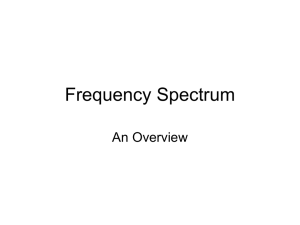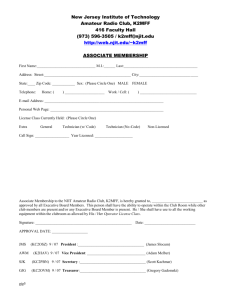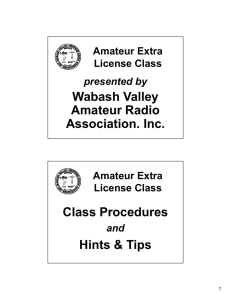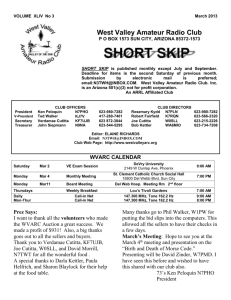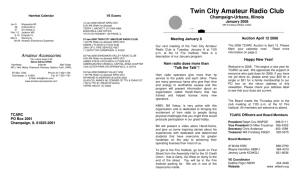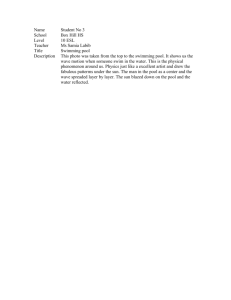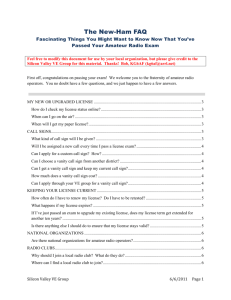How To Become A Ham - Ogden Amateur Radio Club
advertisement
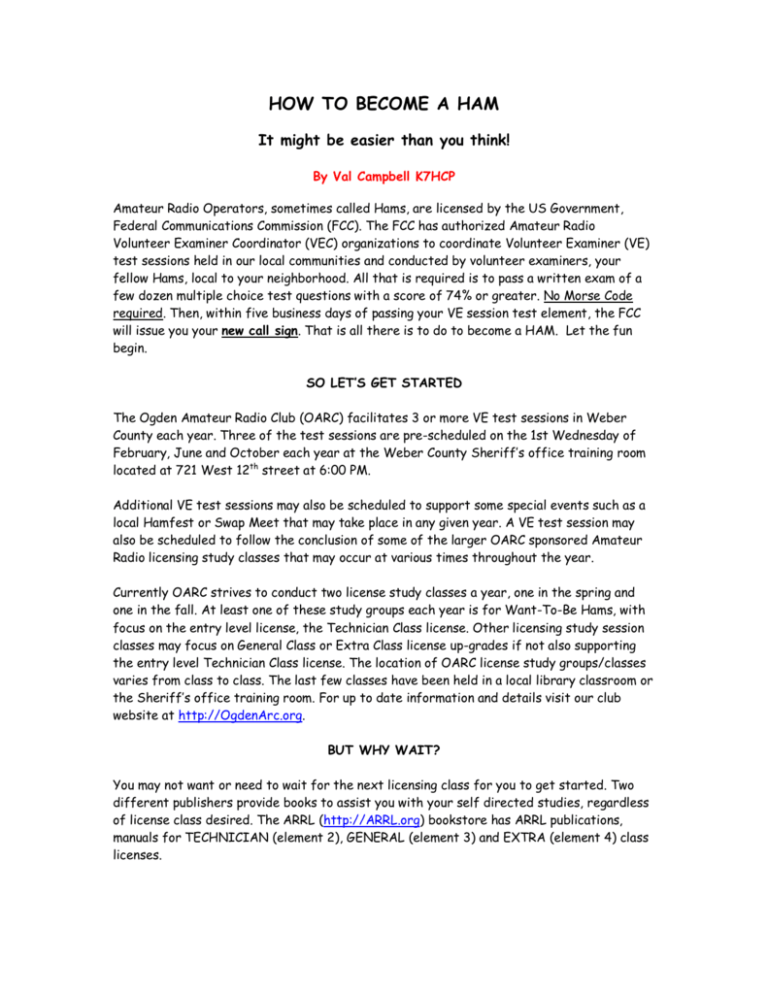
HOW TO BECOME A HAM It might be easier than you think! By Val Campbell K7HCP Amateur Radio Operators, sometimes called Hams, are licensed by the US Government, Federal Communications Commission (FCC). The FCC has authorized Amateur Radio Volunteer Examiner Coordinator (VEC) organizations to coordinate Volunteer Examiner (VE) test sessions held in our local communities and conducted by volunteer examiners, your fellow Hams, local to your neighborhood. All that is required is to pass a written exam of a few dozen multiple choice test questions with a score of 74% or greater. No Morse Code required. Then, within five business days of passing your VE session test element, the FCC will issue you your new call sign. That is all there is to do to become a HAM. Let the fun begin. SO LET’S GET STARTED The Ogden Amateur Radio Club (OARC) facilitates 3 or more VE test sessions in Weber County each year. Three of the test sessions are pre-scheduled on the 1st Wednesday of February, June and October each year at the Weber County Sheriff’s office training room located at 721 West 12th street at 6:00 PM. Additional VE test sessions may also be scheduled to support some special events such as a local Hamfest or Swap Meet that may take place in any given year. A VE test session may also be scheduled to follow the conclusion of some of the larger OARC sponsored Amateur Radio licensing study classes that may occur at various times throughout the year. Currently OARC strives to conduct two license study classes a year, one in the spring and one in the fall. At least one of these study groups each year is for Want-To-Be Hams, with focus on the entry level license, the Technician Class license. Other licensing study session classes may focus on General Class or Extra Class license up-grades if not also supporting the entry level Technician Class license. The location of OARC license study groups/classes varies from class to class. The last few classes have been held in a local library classroom or the Sheriff’s office training room. For up to date information and details visit our club website at http://OgdenArc.org. BUT WHY WAIT? You may not want or need to wait for the next licensing class for you to get started. Two different publishers provide books to assist you with your self directed studies, regardless of license class desired. The ARRL (http://ARRL.org) bookstore has ARRL publications, manuals for TECHNICIAN (element 2), GENERAL (element 3) and EXTRA (element 4) class licenses. Gordon West (WB6NOA) publishers (http://GordonWestRadioSchool.com or http://W5YI.org) also publish manuals for each license class. You may want to look for any of these publications on http://Amazon.com or at Barnes and Noble book stores. Additionally, the Davis County Amateur Radio Club (DCarc) and the Utah Amateur Radio Club (Uarc) bookstores may also have these manuals available for purchase. The study guide that the class has been using for the one day cram class is the Tech Study Guide by KB6NU ... www.KB6NU.com/study-guides. WHICH IS BEST? Which of the publisher’s manuals are the best, you ask. Well, it is a matter of preference. The ARRL publications tend to provide in-depth documentation and technical information surrounding each study question along with the four multiple-choice answers. If you want to learn, really learn, the material and end up with a complete understanding of the material presented, then this is the preferred method of study. On the other hand, Gordon West tends to get right down to business presenting the study test questions with the four multiple-choice answers, just as they appear in the actual VE test and then indicates which of the four answers is the correct answer to each question and why. ON LINE STUDY TUTORIALS Another method to quickly learn the test material is to go online. At http://QRZ.com you will find a very good online practice study test that will take you through the entire question pool for whichever test element (class) license you desire. The practice test will automatically score your test and guide you through the areas where you need improvement. The online test URL is: http://www.qrz.com/p/testing.pl Two other quality online practice tests are located at http://AA9PW.com and http://hamtestonline.com . At the OARC club website http://OgdenARC.org homepage, you will find a quick link to all three sites. Recently the ARRL posted a 6.5 hour ARRL Amateur Radio Technician Class Training Course on YouTube.com. Check it out. There is a link to this item on the OARC website. THE QUESTION POOL Each of the license class test elements are comprised of a pool of questions, each with four multiple-choice answers. Typically two of the answers are distracters and two are reasonable answers. However, only one of the two reasonable answers is the correct answer. The question pool contains at least 10 times as many questions as the actual test that you will be given. For example, element 2, the Tech Class test, consists of 35 questions randomly selected from a pool of 390+ questions. Element 3 (General Class) test consists of 35 test questions from a pool of 480+ questions and element 4 (Extra Class) test consists of 50 questions from a pool of over 730+ questions. Each year, one of the license class (elements) test pool of questions/answers is updated. The following year another license class (element) test pool will be updated. Therefore every three years each of the 3 question pools comes up for review and update. Then the results are re-published (see ARRL or Gordon West/W5YI publications above). So be sure to get the most current publication available for any of the test elements because the content changes somewhat every three years as the question pool/answers are updated over time to keep up with changes to rules and regulations and technology advances. COME OUT AND JOIN THE FUN Every 3rd Saturday OARC members, visitors and guests meet to share their mutual interest in this exciting hobby called Ham Radio. Regardless of your specific interests in the hobby, be it worldwide communications on the shortwave bands or local communications via mountain top repeaters, this hobby has something to offer you. Some are interested in participating in the hobby to support emergency communications preparedness for civic, church or public service organizations. ARES and RACES are two national organizations that promote this kind of activity. Others simply enjoy sharing the technical challenge that the hobby has to offer and the life long friendships that we establish participating in the endless list of exciting activities that Amateur Radio offers. Mark the 3rd Saturday on your calendar and come visit us at the next Ogden Amateur Radio Club (OARC) meeting. Visitors are always welcome. 73, Val Campbell K7HCP
